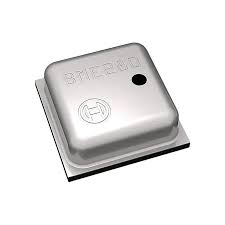

For Doxygen documentation click <a href="https://juraszekl.github.io/BME280_Driver/index.html" >here</a>. (only latest version)
Offline doxygen documentation for current version is attached as Doc.zip file. Unzip this file and open index.html in your browser.
Driver for Bosch BME280 Combined sensor.
This version contains abstract layer only - user must develop platform-specific driver (just three functions are needed).
Features
- Communication with I2C and SPI bus
- Read all measured values in Normal and Forced mode
- Results returned as integers or floats
- Configurable use 32-bit variables only (when 64-bit are not avalible)
- No dynamic memory allocation used
- Multithread use not supported yet
Driver is still under development, next features will be add soon. Current version - v2.0.x
Sensor description
The BME280 is a humidity sensor especially developed for mobile applications and wearables where size and low power consumption are key design parameters. The unit combines high linearity and high accuracy sensors and is perfectly feasible for low current consumption, long-term stability and high EMC robustness. The humidity sensor offers an extremely fast response time and therefore supports performance requirements for emerging applications such as context awareness, and high accuracy over a wide temperature range. BME280 Datasheet
Motivation
This project is for learning purposes only. Feel free to use it.
How to use
To use this driver perform steps listed below:
1. Clone driver into your workign directory:
or use as submodule if your working directory is a git repo
2. Include **__bme280.h__** file:
3. Perform configuration in **__bme280.h__** file if needed:
4. Create global BME280_Driver_t structure and fill it with platform specific data:
5. Write platform-specific functions required by driver:
Read Function:
Write Function:
Delay Function:
6. Use BME280_Init Function before any operation:
BME280_t *Dev structure is a reference for single sensor you want to work with. Should be global as well. Use pointer to this structure with any other functions from this driver.
Optional steps
- Change defined types if needed: typedef int32_t BME280_S32_t;typedef uint32_t BME280_U32_t;typedef int64_t BME280_S64_t;uint32_t BME280_U32_tunsigned 32-bit integer variableDefinition bme280_definitions.h:201
- Set all sensor's settings at once (after Init function) int8_t BME280_ConfigureAll(BME280_t *Dev, BME280_Config_t *Config)Function to set all sensor settings at once.Definition bme280.c:270
